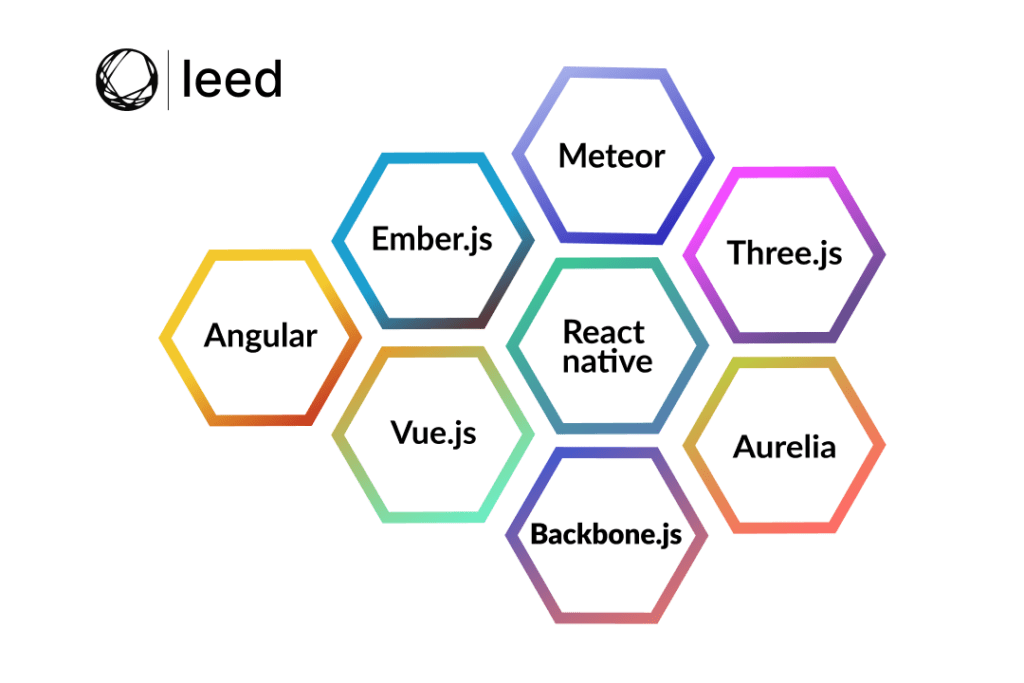Index Surge: Amplifying Your Insights
Stay updated with the latest trends and news across various industries.
JavaScript Frameworks: The Great Debate of Today’s Developers
Dive into the ultimate showdown of JavaScript frameworks! Discover which ones reign supreme in the developer community today.
Exploring the Pros and Cons of Popular JavaScript Frameworks
When it comes to modern web development, JavaScript frameworks like React, Angular, and Vue.js have gained immense popularity due to their ability to streamline the development process. One of the primary advantages of using these frameworks is their component-based architecture, which promotes reusability of code and simplifies the management of complex applications. Additionally, the vibrant communities surrounding these frameworks provide extensive resources, libraries, and tools that further enhance developer productivity. For instance, developers can leverage pre-built components in their projects, significantly reducing development time and effort.
However, there are also some drawbacks to consider when adopting popular JavaScript frameworks. For instance, the learning curve can be quite steep for beginners, especially with frameworks like Angular that come with a plethora of features and conventions. Furthermore, the reliance on third-party libraries may lead to challenges in maintaining the project's long-term sustainability and performance. Performance issues may arise as frameworks can introduce overhead that isn't always beneficial, particularly for smaller applications. Thus, it's crucial for developers to weigh these pros and cons before diving headfirst into a specific framework.

React vs. Vue vs. Angular: Which Framework Reigns Supreme?
When it comes to modern web development, React, Vue, and Angular stand out as three leading JavaScript frameworks that developers frequently debate. Each framework offers unique features and benefits that cater to different needs and preferences. For instance, React is renowned for its component-based architecture and virtual DOM, which can lead to exceptional performance when building dynamic user interfaces. Vue, on the other hand, is celebrated for its simplicity and ease of integration, making it a popular choice for beginners and small to medium-sized projects. Meanwhile, Angular is a robust framework suited for large-scale applications, providing a comprehensive solution with its dependency injection and modular development capabilities.
When choosing between these frameworks, it’s essential to consider various factors such as performance, scalability, and the development community. React offers a rich ecosystem and impressive performance metrics, thanks to its efficient rendering process. Conversely, Vue boasts a gentle learning curve, which allows developers to quickly become productive, while still providing powerful features. Lastly, Angular is favored for enterprise-level applications, where robust structure and maintainability are critical. Ultimately, the decision regarding which framework reigns supreme hinges on your project's specific requirements and the team's proficiency with each technology.
What JavaScript Framework Should You Choose for Your Next Project?
When it comes to selecting a JavaScript framework for your next project, it's essential to consider several factors that align with your project's goals and team expertise. Popular frameworks like React, Angular, and Vue.js each come with their unique strengths and potential drawbacks. For instance, React is renowned for its flexibility and component-based architecture, making it a hit among developers who prefer a more customizable approach. On the other hand, Angular offers a fully-fledged framework with robust features out-of-the-box, ideal for larger applications that require extensive functionality. Meanwhile, Vue.js strikes a balance between ease of use and versatility, making it a solid choice for developers seeking a gentle learning curve.
To make an informed decision, you should evaluate a few key criteria: project requirements, community support, and long-term maintainability. Start by defining what you need from a JavaScript framework, including performance considerations and scalability. Next, analyze the size and responsiveness of the community surrounding a framework. A vibrant community often means more resources, tutorials, and third-party plugins available, which can significantly speed up development. Finally, consider the long-term implications of your choice; a framework that is consistently updated and maintained will provide greater stability and less technical debt as your project evolves.